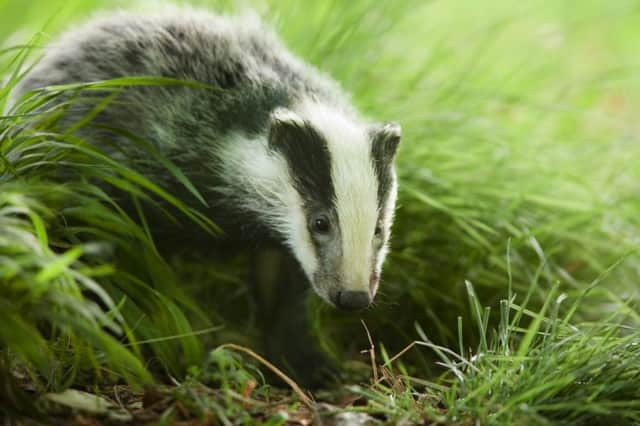UFU position on TB eradication


Last week we summarised our position on finance and funding and this week we cover wildlife.
The answers to the questions have been shortened to fit UFU Watch. The consultation and answers in full are available at www.ufuni.org
WILDLIFE
Advertisement
Hide AdAdvertisement
Hide AdDo you agree with the Department’s proposals for wildlife intervention - that is, culling in a central zone, and complementary actions to mitigate perturbation or reinfection as appropriate?
Yes. This is a subject that our membership is particularly passionate about. Within our membership, the consensus is that farmers are the nation’s food providers and primary custodians of the countryside. With this in mind, farmers bear no innate ill-will towards any form of wildlife. They do however have a deep seeded loathing for TB and after over 60 years of ever more stringent controls on farm which have culminated in Northern Ireland having amongst the most robust bTB controls in cattle in the world and yet still making no progress towards TB eradication, farmers have long since come to the conclusion that our current TB eradication plan is only addressing one side of the TB problem and as long as it continues to do so, it is destined to continue to fail.
Looking abroad to other countries, which have made significant progress towards eradicating TB, our committees have looked to New Zealand and the Republic of Ireland for examples of best practise. In the Republic of Ireland, a nationwide wildlife intervention policy has been in operation since 2004. During this time, the Republic of Ireland has reduced the national herd incidence from 6% to around 2%.
In New Zealand, wildlife intervention has formed a key part of the their TB eradication policy for almost 30 years and has proven to be instrumental in reducing the number of herds infected with TB from around 1,400 to around 50 today. In both countries, a long term wildlife intervention strategy is considered to be a fundamental part of their TB eradication policy as without addressing TB wherever it is found there can be no hope of ever fully eradicating it.
Advertisement
Hide AdAdvertisement
Hide AdThe UFU has raised concerns about the estimated costs proposed and has suggested that costs could be reduced considerably to provide better value for money.
Do you agree with the TBSPG’s and the Department’s assessment that stand-alone vaccination is better utilised as part of a longer-term badger intervention strategy?
Yes. The UFU are supportive of the use of vaccination as part of the longer-term badger intervention strategy provided such measures deliver a more cost effective means of eradicating TB in the wildlife reservoir. Given that vaccines are likely to have no effect on already infected animals, the current prevalence of TB in the badger population (in excess of 17%) and that the current vaccine is only available in an injectable form, our committees do not believe that a standalone vaccination policy would achieve the desired effect within a reasonable timescale or budget compared to other wildlife intervention strategies available at this time.
Furthermore, we are aware that in the Republic of Ireland the move towards badger vaccination was only considered after over 13 years of badger removal which meant that badger density and infection load was significantly reduced thereby making a standalone vaccination policy more economically viable and likely to be successful.
Advertisement
Hide AdAdvertisement
Hide AdDo you agree that vaccination is better utilised in combination with badger removal to first reduce infection in badgers in the short-term?
Yes. Given that to date we have seen no peer-reviewed evidence that badger vaccination is effective in protecting badgers from TB, that it is almost certain to have no effect on already infected badgers, and the current accuracy of the badger TB test remains unknown to know if the correct decision is being made to vaccinate or remove a badger, it is clear that any vaccination programme introduced must be utilised in combination with a policy of badger removal in order to reduce the infection load and local badger population density first.
Do you agree that the role that other species might play in the spread of bTB to cattle should be kept under review and that further research should be carried out if resources allow?
Yes. The UFU is supportive of keeping the role of other species (e.g. deer and camelids) which may play a role of spreading TB to cattle under review. We are supportive of developing a more robust local evidence base to direct policy in these areas.
Advertisement
Hide AdAdvertisement
Hide AdDo you agree that there is merit in continuing, expanding and enhancing the badger RTA Survey?
Yes. The UFU agrees that the RTA survey provides a useful snapshot of the levels of bTB in the badger population at national levels. Over the duration of the survey (almost 20 years), it has indicated a prevalence of TB in the badger population of around 17% compared to the current cattle incidence of less than 1%.